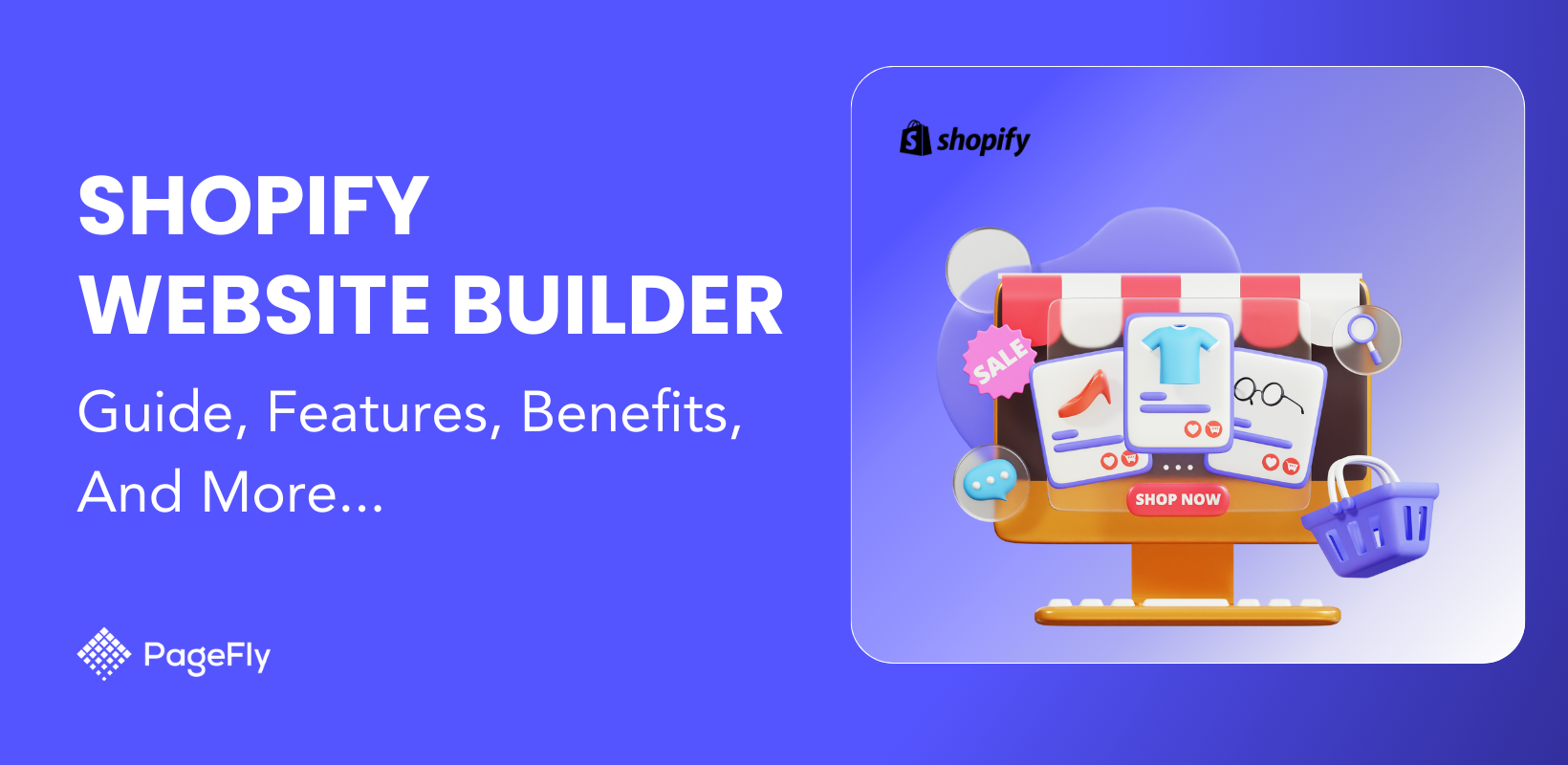Large Shopify brands achieve success through great products, effective marketing, and strong teamwork. However, a crucial element working behind the scenes ties all these components together – the Shopify ERP.
Enterprise Resource Planning (ERP) systems are the backbone of day-to-day operations for these brands, enabling seamless management of employees, finances, customer relationship management, and inventory procurement.
While small to medium-sized businesses might manage without them, reaching a certain level of growth necessitates an ERP to ensure the company runs like a well-oiled machine.
This article explores the best ERP integrations you should consider in your Shopify store, helping you choose the right tools to streamline your operations in your growing business.
Understanding Shopify ERP System – Components, Use Cases, & Benefits
A Shopify ERP is the integration of enterprise resource planning software with your Shopify store to manage various aspects of your business. This includes inventory, orders, finances, customers, and supply chain (we’ll discuss this in more detail below). And by integrating an ERP for Shopify, you can streamline your business operations across multiple channels, improve efficiency, and minimize errors in between your processes.
ERPs are complex software designed for complex businesses such as enterprise-scale stores. And a well-integrated ERP will allow you to have real-time data synchronization, meaning that every aspect of your store, from customer to inventory, is monitored and updated automatically
Use Cases For Shopify ERP
ERP systems have various use cases, depending on the components they employ. For instance, businesses in regulated industries like Shopify CBD stores may use ERP to streamline compliance alongside supply chain and inventory management.
Here are the following use cases of Shopify ERP:
Inventory Management
The inventory management module of an ERP for Shopify tracks stock levels across all channels, ensuring real-time updates. By integrating Shopify hardware like POS systems, businesses can further streamline inventory tracking and in-store operations.
It automates reorder points, preventing stockouts and overstocking. This is crucial for managing both physical and digital stores efficiently, offering insights into available products.
Order Management
This software integrates sales channels to streamline the entire order process, from order creation to delivery. It ensures that orders from all your sales channels are processed through a single ERP. Order management also connects with logistics and inventory.
Financial Management
An integrated financial management system tracks income, expenses, and tax information of your Shopify store in real-time. It centralizes and automates financial data, reducing manual entry and the potential for human error for better accuracy and compliance.
Customer Relationship Management (CRM)
A customer relationship management or CRM software stores and manages all customer data that can help you strategize customer engagement and retention.
It provides a 360-degree view of customer interactions, purchases, and preferences. You can then use this data to improve marketing efforts and personalize the shopping experience.
Supply Chain Management
The Supply Chain Management software coordinates with suppliers, production, and logistics to minimize supply chain disruptions.
This software tracks your goods through every step of the supply chain and it can allow you to optimize procurement and vendor relationships.
Analytics and Reporting
Lastly, reporting tools in an ERP offer in-depth insights into key business operations. From sales trends to inventory turnover, and everything in between. Analytics and reporting tools in an ERP are customizable to allow you to track the KPIs that matter most to your business.
Benefits Of Shopify ERP Integration

Source: Pexels
Shopify ERP integration can have a positive impact on your business. Here are the benefits of using an ERP.
Centralized Data Management - Centralize all your business data, including customer data, inventory levels, orders, production, finances, and more.
Improved Efficiency - Automate repetitive tasks in your business such as order processing, inventory updates, financial reporting, etc.
Better Customer Experience - Provide a personalized experience for each of your customers as well as tailored marketing strategies. Thus allowing them to experience a delightful journey with your brand.
Enhanced Scalability - Since ERPs are designed to be efficient, they can handle tasks despite increasing complexity allowing you to properly manage growth without affecting quality.
Real-Time Insights - Real-time data access to sales trends and reporting tools to provide actionable insights about your business.
Cost Savings - Increases accuracy and reduces man hours on repetitive tasks resulting in savings on man hours.
Compliance and Security - ERP integration can help uphold compliance with legal and tax regulations by automatically updating records and preparing reports. Additionally, centralization can increase data security.
Best ERP For Shopify – Top 10 List
If you’re looking for Shopify ERP integration, here are the systems that you should consider checking. To know how they work in the real world, we analyzed their G2 ratings and indicated those ratings underneath each solution.
Let’s begin.
Oracle Netsuite Enterprise Resource Planning Software
https://www.netsuite.com/portal/products/erp-0.shtml

G2 Rating: 4.0 out of 5 (3,500+ reviews)
Pricing: Upon request
NetSuite’s enterprise resource planning (ERP) system is a comprehensive cloud-based solution designed to automate core business processes such as accounting, inventory, order management, and supply chain operations.
It provides real-time visibility into key business operations, allowing organizations to improve efficiency, streamline workflows, and manage global business units effectively.
The ERP solution integrates various tools, including financial management, customer relationship management, and procurement. With scalable solutions, NetSuite ensures smooth ERP integration for businesses of all sizes across multiple industries.
Sage Intacct
https://www.sage.com/en-us/sage-business-cloud/intacct/

G2 Rating: 4.3 out of 5 (3,400+ reviews)
Pricing: Upon request
Sage Intacct is a cloud-based ERP solution designed to streamline financial management for growing organizations and mid-sized businesses.
It offers comprehensive features including:
- advanced financial reporting
- automated accounts payable
- real-time multi-entity consolidation.
With AI-powered continuous accounting and seamless integration with other business tools, Sage Intacct helps businesses make data-driven decisions, enhance productivity, and manage business operations more efficiently.
Trusted by over 24,500 businesses, Sage Intacct is a robust solution for those looking to scale their operations with advanced ERP software capabilities.
Acumatica Cloud ERP
https://www.acumatica.com/

G2 Rating: 4.5 out of 5 (1,200+ reviews)
Pricing: Upon request
Acumatica Cloud ERP is a flexible and scalable ERP software solution designed to streamline operations for mid-sized businesses.
It offers industry-specific modules such as:
- financial management
- inventory data, distribution
- customer relationship management (CRM).
With its cloud-native architecture, Acumatica provides real-time insights and supports integration with existing systems.
Moreover, the ERP system enables businesses to automate workflows, reduce operational costs, and improve decision-making.
Additionally, its user-friendly interface, combined with flexible deployment options, ensures adaptability and enhanced collaboration across teams.
Quickbooks Enterprise
https://quickbooks.intuit.com/desktop/enterprise/erp/

G2 Rating: 4.2 out of 5 (900+ reviews)
Pricing: Starts at $1922 per year
QuickBooks Enterprise offers a comprehensive enterprise resource planning solution tailored for small to mid-sized businesses.
It integrates core ERP system functions like:
- including advanced inventory management
- customizable reporting
- payroll
- order tracking.
The platform provides real-time data and flexibility with cloud access, enabling businesses to manage their operations efficiently from anywhere.
With powerful features such as automated workflows and multi-channel sales management, QuickBooks Enterprise streamlines business processes for growing companies, helping them stay competitive without the complexity of traditional ERP software.
SAP S/4HANA Cloud
https://www.sap.com/uk/products/erp/s4hana.html

G2 Rating: 4.5 out of 5 (700+ reviews)
Pricing: Upon request
SAP S/4HANA Cloud is an intelligent ERP system that helps businesses optimize their operations by integrating real-time data and automation technologies. The platform supports industries with preconfigured business processes, fast deployment, and continuous updates to ensure seamless adaptability to evolving market demands.
Notably, its built-in AI, machine learning, and advanced analytics improve decision-making and streamline workflows.
Furthermore, with secure cloud-based deployment, ERP systems like SAP S/4HANA Cloud offer scalability and flexibility, helping businesses manage customer data, financials, inventory, and supply chains efficiently.
It also provides continuous innovation and high-level security to support long-term growth and compliance needs.
Microsoft Dynamics 365 Business Central
https://www.microsoft.com/en-us/dynamics-365/products/business-central

G2 Rating: 3.9 out of 5 (700+ reviews)
Pricing: Starts at $70 per user per month
Microsoft Dynamics 365 Business Central is a comprehensive and modular enterprise resource planning solution designed for small to mid-sized businesses.
This ERP system can be setup with centralized modules such as:
- financial management
- Operations
- Sales
- warehouse management
- customer relationship management
The ERP supports automation, advanced reporting, and seamless collaboration with Microsoft 365 tools like Teams, Outlook, and Excel. With cloud access and real-time insights, Business Central enhances business operations, making it easier to manage inventory, track cash flow, and optimize supply chains efficiently.
Certinia ERP Cloud
https://certinia.com/erp-cloud-software/

G2 Rating: 3.9 out of 5 (400+ reviews)
Pricing: Upon request
Certinia ERP Cloud, built on the Salesforce platform, offers a customer-centric approach to managing business operations.
This ERP software streamlines core functions like:
- accounting
- procurement
- order management
- revenue forecasting
It provides businesses with real-time data, automating complex processes like subscription billing and financial planning to enhance operational efficiency.
With robust ERP software capabilities, Certinia helps organizations optimize resources, improve collaboration, and drive customer satisfaction through its seamless integration with Salesforce, ensuring businesses can scale and grow confidently.
Epicor Kinetic
https://www.epicor.com/en/products/enterprise-resource-planning-erp/kinetic/

G2 Rating: 3.8 out of 5 (400+ reviews)
Pricing: Upon request
Epicor Kinetic is a cloud-based ERP designed for manufacturers, providing end-to-end management for production, supply chain, and financials.
Built with industry-specific features, it integrates enterprise resource planning tools that help streamline business operations, enhance visibility across global supply chains, and boost productivity through automation.
Moreover, with AI-powered analytics, Kinetic empowers manufacturers to optimize efficiency, scale operations, and meet the evolving demands of the market. It offers flexible deployment options, including cloud, on-premises, or hybrid solutions, ensuring adaptability for a range of manufacturing environments.
Odoo ERP
https://www.odoo.com/

G2 Rating: 4.2 out 5 (200+ reviews)
Pricing: Starts at $9.10 per user per month
Odoo is an open-source ERP designed to cover a wide range of business needs, including CRM, eCommerce, accounting, inventory, and project management.
Its modular approach allows businesses to customize their platform with over 40,000 apps, providing a fully integrated solution that simplifies complex operations.
Odoo’s ERP software is user-friendly and highly scalable, making it suitable for businesses of all sizes. And with its open-source nature, it ensures flexibility, no vendor lock-in, and the ability to host either on-premise or in the cloud.
Workday Enterprise Management Cloud
https://www.workday.com/en-us/pages/erp-workday-enterprise-management-cloud.html

G2 Rating: 4.4 out of 5 (30+ reviews)
Pricing: Upon request
Workday Enterprise Management Cloud is a comprehensive ERP designed to streamline core enterprise resource planning processes such as:
- financial management
- human capital management
- supply chain operations
It offers real-time insights, enhanced automation, and flexibility to meet evolving business needs.
The platform integrates with existing tools and provides scalability for growing businesses, all while maintaining high data security and compliance standards.
With its cloud-based approach, Workday helps organizations improve operational efficiency and decision-making across departments, driving productivity and fostering better collaboration within teams in one central platform.
Integrating ERP For Shopify: The Five-Step Process
Shopify ERP systems, or any ERP for that matter, require knowledge of the process complexities. Thus, if you plan to integrate a system like this into your business, make sure that you select a service provider with a proven track record in ERP systems.
ERP implementation might take a few weeks to a few months. Here are the steps that you need to be aware of in implementing an ERP for Shopify. Take note that various service providers might have different stages, but the process will still be similar.
Define Business Requirements And Objectives
The first step in Shopify ERP implementation is to identify the key processes to integrate. These processes entail having several components in your system such as:
- Inventory management
- Order fulfillment
- Accounting
- Customer relationship management, and more.
And in identifying the key processes to integrate, you also need to determine the specific goals that you want to achieve, as well as the parties that will have access to your data.
Select The Right ERP For Shopify
After determining the aspects that you want to automate in your business, research and choose an ERP system that fits your future goals and budget.
More importantly, select a system that integrates with the Shopify API to have a seamless experience.
Prepare Data For Migration
Before migrating your business data to the ERP system, ensure that every Shopify file, including customer records and order histories, is well-organized and cleaned. This will help your new ERP system function as intended.
Additionally, it is crucial to maintain a data backup to ensure that no vital information is lost throughout the process.
Integrate Shopify With ERP
Now that your business data is ready for migration, you need to set up API integrations between Shopify and the ERP system of your choice. Some ERP systems like Acumatica natively integrate with the ecommerce platform. But if not, you need an integration platform or third-party connector to make this possible.
Integration platforms are used to harmonize the two non-natively integrated platforms. In this case, if your ERP of choice does not natively connect to Shopify, you’ll need an integration platform.
Once the ERP for Shopify is integrated, you can start to begin configuring the system to tailor it to your business’s unique processes.
Test, Train, And Go Live
The final step in Shopify ERP implementation before full deployment is the testing stage. This means that your ERP system runs alongside your existing business processes to compare the improvements. This also allows you to avoid errors when your ERP system is not yet fully ready.
The testing process could also take a long time depending on the scale of your business operation. But it’s important to not rush the process to ensure that once it's live, risks are little to none.
Once confident with the results, switch to full live mode and monitor to see and address potential errors until everything runs smoothly.
Conclusion
The process of Shopify ERP integration is a long process that requires preparation in terms of financial and human resources. In implementing ERP systems, the human aspect of your business must also be ready so the system can be maximized through full adaptation.
Truth be told, ERP systems are expensive. In addition to that, the man hours needed to fully implement it can jack up the prices. But at the end of the day, if you feel that your business is hampered by your legacy systems, it’s a good indication that an ERP system has become a necessity.
Thus, be sure to explore all the options available to you and take your time talking with potential service providers to find the best ERP for your Shopify store.
Shopify Erp FAQ
Shopify does not have a native ERP system. However, you can integrate popular ERP solutions like Acumatica, NetSuite, and Microsoft Dynamics 365 with your Shopify store to streamline operations.
Enterprise Resource Planning (ERP) for commerce refers to software solutions designed to improve efficiency in medium to large-scale businesses. These systems centralize complex processes and data, enhancing accuracy, operational efficiency, and long-term savings.
Shopify does not come with a built-in ERP system. However, it supports integration with various ERP solutions. Businesses can choose an ERP system that best fits their needs and work with a service provider to manage the integration seamlessly.




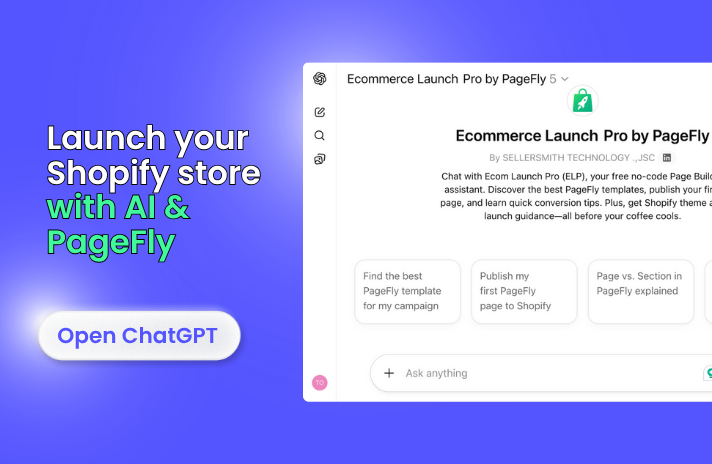
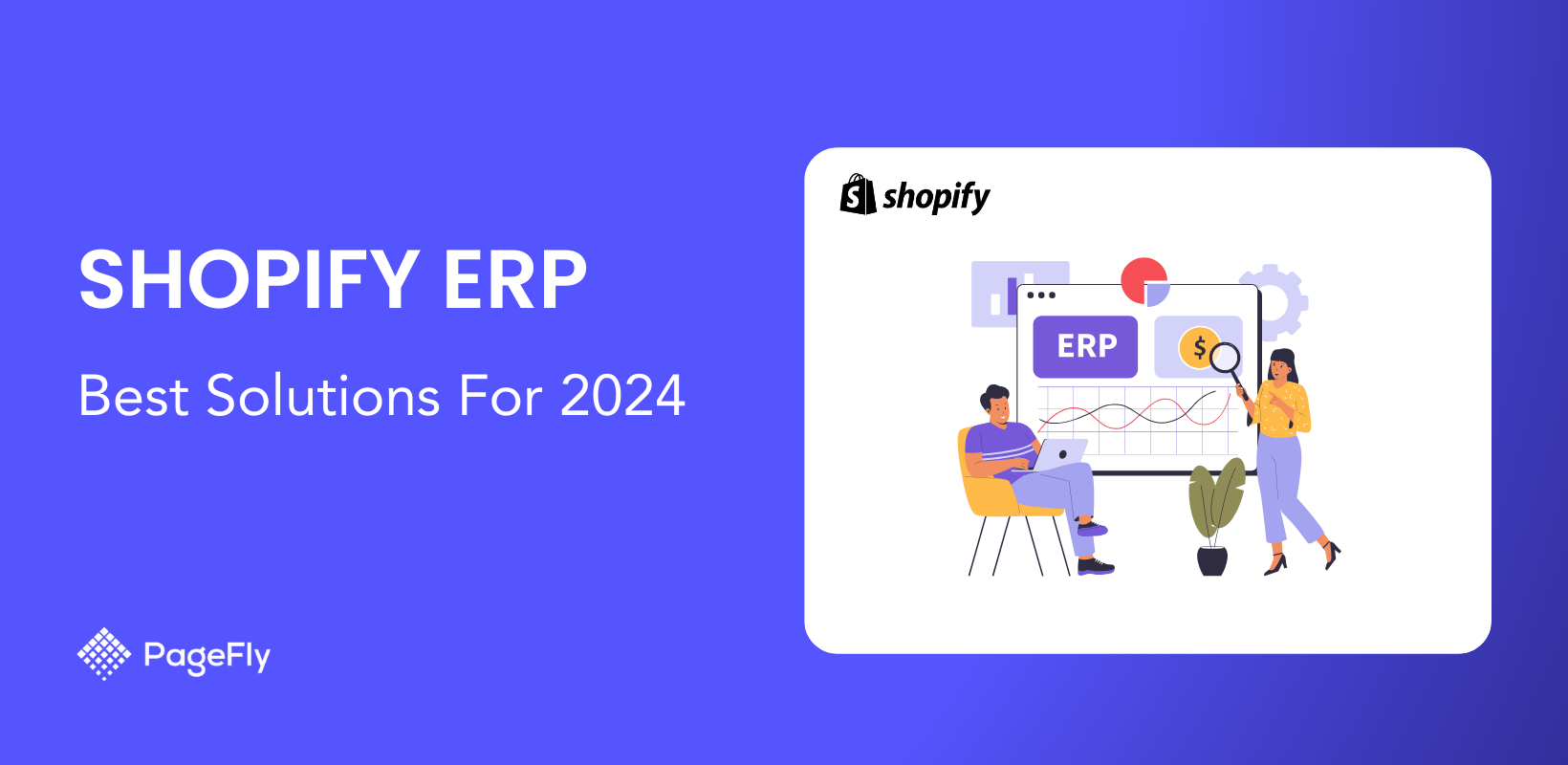



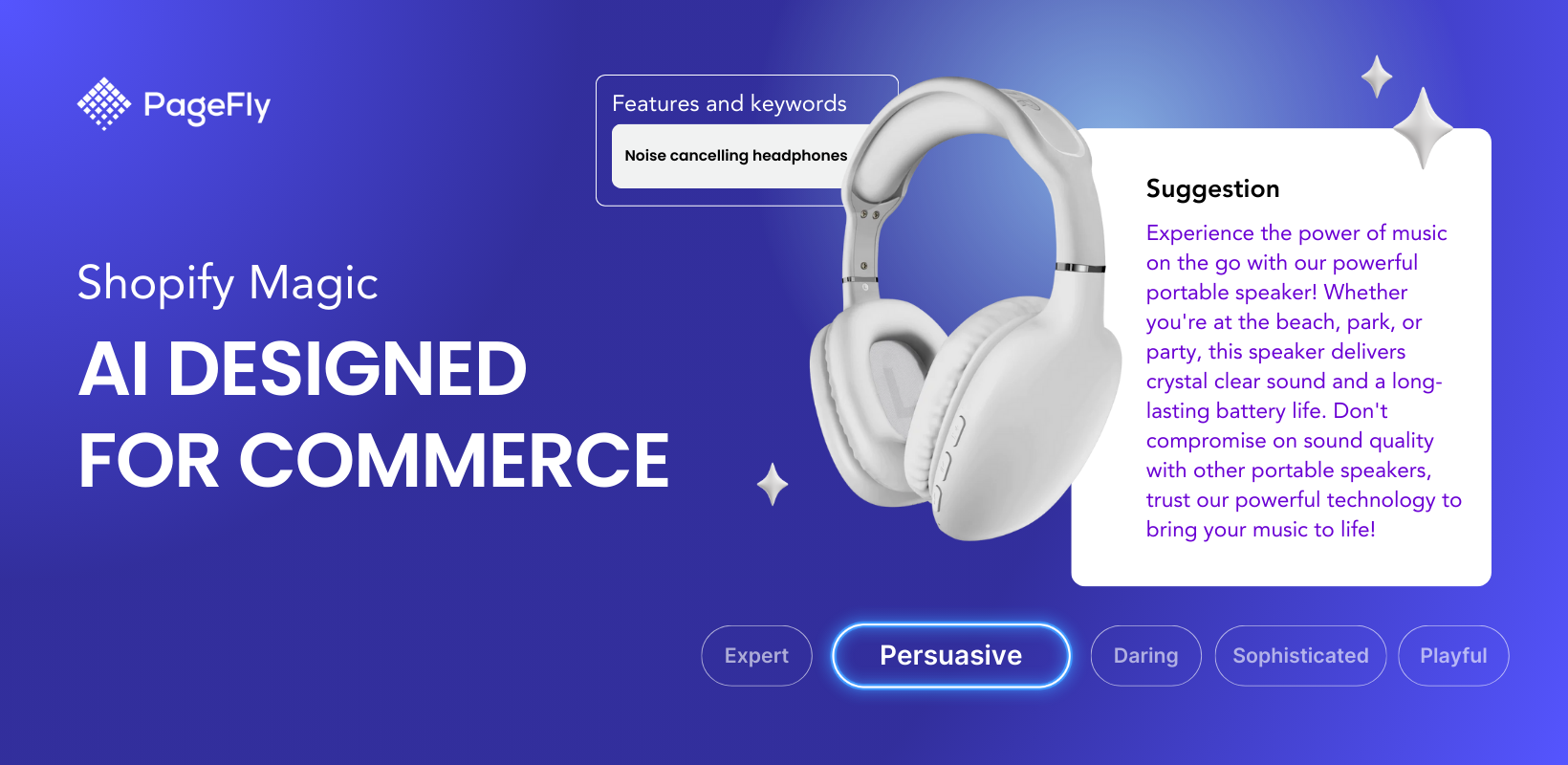

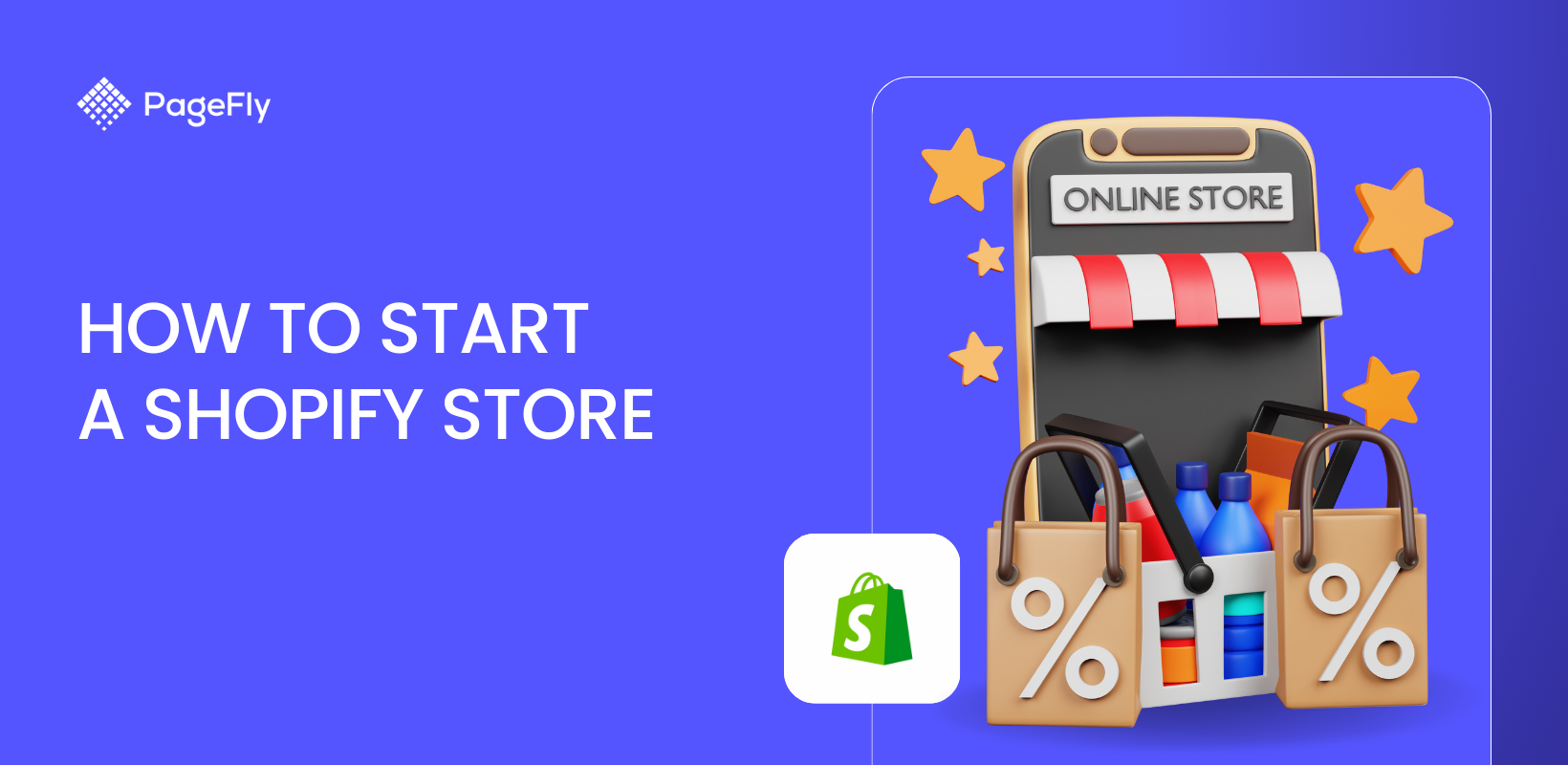
![27 Best Shopify General Stores + Complete Strategy Guide [2025]](http://pagefly.io/cdn/shop/articles/Best_Shopify_General_Stores_2f9d09f2-7c38-4da9-a495-e9f4898ddd68.jpg?v=1757271936&width=1640)

